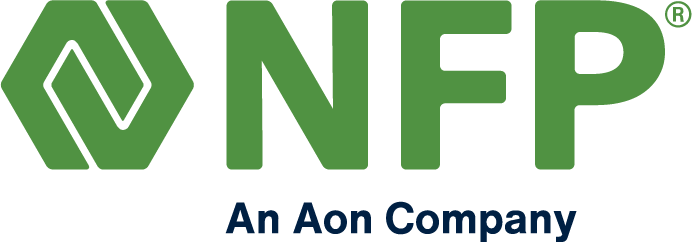Running Effective Board and Committee Meetings

NFPCC attends over 100 board and committee meetings annually. Each meeting is unique; however, there is a key factor that makes a meeting and its discussions fruitful: preparation. Benjamin Franklin once said, “failing to prepare is preparing to fail.” NFPCC agrees with this adage, as an effective meeting can leave your team focused and energized. In fact, a single good or bad meeting can have a major impact on participant morale and even corporate initiatives, both short and long-term.
Over the past two decades, NFPCC has been busy in the boardroom listening, observing, and teaching effective compensation and strategic governance practices. As we approach the end of the first quarter of 2024, NFPCC thought it might be useful to review good boardroom practices as it relates to preparing for and running effective board meetings.
Meeting Preparation
What does good meeting preparation look like? Are there any market best practices and efficiencies that will keep meetings flowing in the right direction? How do we avoid surprises? These are questions NFPCC encounters quite often and aims to tackle here.
One thing is certain about any conversation – they can become derailed very quickly and may leave those involved feeling out of sync and frustrated. This is especially true if there is little framework to structure a meeting. Companies that hold valuable discussions share a consistent structure that typically includes a formalized calendar, meeting agenda, relevant materials and a lot of advanced communication.
Below, NFPCC has detailed several key factors to aid in the preparation process:
Board & Committee Calendars
For annual, quarterly or monthly meetings, board and committee calendars serve as a foundation for planning ahead. Scheduling dates and times for recurring meetings is imperative and it is important for calendars to include agenda items and topics or issues for discussion. NFPCC strongly encourages every client we advise to create and maintain a formalized calendar, both the board and its various committees.
The following details NFPCC’s rationale for utilizing a calendar:
- Defined meeting dates and times allows directors adequate time to prepare and formulate questions or raise concerns;
- Socializing agenda items, hot market trends or corporate objectives, key issues and questions for coverage will set the tone for the meeting ahead; and
- Calendars with agenda items will set expectations on the conversations to be had, keep the group on track and avoid unnecessary conversations.
NFPCC assists public, private and non-profit companies with the review and/or development of board and committee calendars throughout the year.
Agenda & Feedback
Circulating a proposed agenda with other directors at least four weeks in advance of a meeting is recommended. If management (i.e. CEO, CFO, General Counsel, CHRO, etc.) will be participating in a meeting, it is a good governance practice to solicit their feedback on agenda items and see if there are any items they wish to include. When all parties are informed and have time to prepare, the probability of a quality discussion drastically increases.
Meeting Materials
After socializing the agenda, it is time to finalize all materials. All meeting materials should follow a consistent structure and be included in a slide deck, binder, or electronic board book for distribution at least one week, if not more, prior to the meeting. NFPCC recommends including a one-to-two-page executive summary or table of contents followed by detailed material for review and discussion.
The Meeting
Any director or executive who has been a part of an unproductive board or committee meeting will more than likely attribute the dysfunction to unnecessary distractions such as veering off topic. Successful meetings are all about efficiency and focusing on pre-socialized subjects only. This is where the preparation process will pay dividends.
Below, NFPCC has outlined processes and procedures that should remain consistent in each board or committee meeting:
Outside Participants
NFPCC finds that including c-suite executives in the meeting who are spearheading any of the initiatives on the agenda can be extremely beneficial. This is an opportunity for executives to learn how the board or committee operates and a time to build relationships. A great example of this is including the CHRO in the compensation committee meetings, where HR updates are commonly discussed.
Presentation of Materials
Throughout the meeting, participants should be engaged in conversation and prepared to stop and answer questions as they arise. Interruptions occur, but too many during a presentation can quickly create a dysfunctional conversation where points can be missed, and tensions can rise. It is generally best to save questions for the end of a presentation. In light of this, NFPCC recommends designating a board member to keep the meeting moving, as some questions may push conversation off course. Typically, this responsibility will rest with the chairperson.
Executive Session
An important and final step following a meeting is to hold an executive session. Executive session is where any non-board or non-committee members step out of the room to allow directors a chance to debrief and talk through items independently. Critical decisions are often made during executive session and if there are any time sensitive or heartburn-related issues, it is best aired out while top-of-mind. From there, directors may then decide on how best to address a topic or concern with Management or shareholders.
Conclusion
When time and energy are put into something, we typically expect those efforts to yield positive results. The same can be said about board and committee meetings, and NFPCC believes meeting preparation, in many cases, can even be more important than the meeting itself. And when companies have well-prepared, well-socialized and well-run board and committee meetings, the time and energy of each participant is spent on the most important matters that will ultimately drive shareholder value.







